====================
This sermon was preached on the 23rd Sunday after Pentecost, October 27, 2013, at St. Paul’s Episcopal Church, Medina, Ohio, where Fr. Funston is rector.
(The Revised Common Lectionary, Proper 25C: Sirach 35:12-17; Psalm 84:1-6; 2 Timothy 4:6-8,16-18; and Luke 18:9-14. These lessons can be read at The Lectionary Page.)
====================
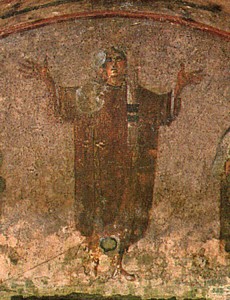 We are straying from our usual lectionary path today because it is one of our Children’s Sundays and we have some younger kids reading the lessons at the 10 a.m. service. So, instead of a long reading from the prophet Joel (RCL Year C, Track 1), we have a brief lesson from the Book of Ben Sira, which is sometimes called Ecclesiasticus. (RCL Year C, Track 2) We thought it would be easier for a child to read.
We are straying from our usual lectionary path today because it is one of our Children’s Sundays and we have some younger kids reading the lessons at the 10 a.m. service. So, instead of a long reading from the prophet Joel (RCL Year C, Track 1), we have a brief lesson from the Book of Ben Sira, which is sometimes called Ecclesiasticus. (RCL Year C, Track 2) We thought it would be easier for a child to read.
This is one of the books of the Apocrypha, those books recognized by the Roman and Eastern Orthodox churches as canonical, but rejected by Protestants. Anglicans steer a middle course and accept them for moral teaching, but not as the basis for religious doctrine. The text is a late example of what is called “wisdom literature,” instruction in ethics and proper social behavior for young men, especially those likely to take a role in governance.
Ben Sira was written early in the 2nd Century before Christ by a Jewish scribe named Shimon ben Yeshua ben Eliezer ben Sira of Jerusalem. The Jewish nation was then under domination of the Seleucid Empire, a Greek-speaking kingdom centered in modern day Syria. Society in Jerusalem was very polarized: powerful vs. weak; rich vs. poor; Jew vs. Gentile. Ben Sira sought to guide his students through socially ambivalent times.
Among the topics he addresses is the proper forms and attitudes of worship. The Seleucid governors had involved themselves in the affairs of the Temple and, therefore, many people (especially the precursors of the Pharisees) believed that Temple worship was comprised and invalid. Furthermore, for many of the city’s wealthy participation in Temple rituals was a matter of show to advance themselves and their agenda; they offered mere lip service to God while oppressing the poor and helpless.
In this social milieu, Ben Sira offered instruction on the nature of worship, sacrifice, and prayer in Chapters 34 and 35 of the book. In Chapter 34 he describes worship that is not acceptable to God:
The Most High is not pleased with the offerings of the ungodly, nor for a multitude of sacrifices does he forgive sins. Like one who kills a son before his father’s eyes is the person who offers a sacrifice from the property of the poor. The bread of the needy is the life of the poor; whoever deprives them of it is a murderer. To take away a neighbor’s living is to commit murder; to deprive an employee of wages is to shed blood. When one builds and another tears down, what do they gain but hard work? When one prays and another curses, to whose voice will the Lord listen? If one washes after touching a corpse, and touches it again, what has been gained by washing? So if one fasts for his sins, and goes again and does the same things, who will listen to his prayer? And what has he gained by humbling himself? (Ben Sira 34:23-31)
He follows this up with the advice we heard in our reading today: “Be generous when you worship the Lord, and do not stint the first fruits of your hands. With every gift show a cheerful face, and dedicate your tithe with gladness. Give to the Most High as he has given to you, and as generously as you can afford.” (Ben Sira 35:10-12)
Ben Sira’s wisdom would have been well known to the people of Jesus’ time. Portions of the book were found among the Dead Sea Scrolls, and a nearly complete scroll was discovered at Masada, the Jewish fortress destroyed by the Romans in 73 AD. In addition, there are numerous quotations of the book in the Talmud, and the Anglican scholar Henry Chadwick (1920-2008) cogently argued that Jesus quoted or paraphrased it on several occasions, including in the petitions of the Lord’s Prayer.
So when Jesus told the parable of two prayers, his original audience would have had Ben Sira’s advice as background; they would have known that Jesus was referring back to a concern about hypocritical worship, about worship that is merely for show, about worship that does not honor the commandments, a concern dating back many years. They would have known who Jesus was condemning, just like we do! They knew that Jesus was not talking about them, just like we know that Jesus is not talking about us! Thank God that we are not like the bad people who pray with self-righteousness and contempt for others . . . .
Oh . . . wait a minute! You see what Jesus has done? He’s trapped us! He’s tricked us into judging the Pharisee, to regarding him with contempt. And by judging the Pharisee we have become like the Pharisee; in order to get Jesus’ point we have to point to the Pharisee and his sin. By pointing to someone else, to “thieves, rogues, adulterers, or even . . . this tax collector,” and to their sins, the Pharisee condemns himself; by pointing to the Pharisee and his sin, we condemn ourselves.
Clever, sneaky preacher, that Jesus! How do we become more like the tax collector and less like the Pharisee? Ben Sira instructed his students to look worship with the eyes and understanding of God, with humility and without partiality.
So here’s an exercise . . . look at the other people all around you in church today. You know most of these people; some of them are in your family; some of them are your friends; you go to breakfast with some of them every Sunday. You may not know others; some are people you see here on Sunday but don’t otherwise socialize with; some may be people you don’t know at all. But about all of them, you do know two things. First, you know that God loves them; God loves every single person in this church today. God made them; God knows them; God loves them.
The second thing you know is that nobody in this church today is perfect. The religious way to say that is that every one of us is a sinner. Each one of us says and does things that hurt others; each one of us says and does things that hurt ourselves; each one of us says and does things that hurt God. Sometimes we do that intentionally; more often we do it negligently. But the simple truth is, whatever the reason for it may be, that we do it.
And here’s a third thing you know, and this you know about yourself . . . that the two things you know about all these people around you in church are also true of you. These are the two central truths of the Christian faith: that we are sinners and that God loves us anyway.
Now I’d like to ask you all to stand, as you may be able.
Raise your right hand, palm cupped up. Receive in that hand the truth that God loves you, that God loves all of us. Now raise your left hand, palm cupped up. Offer from that hand to God the truth that you are not perfect, that you are a sinner. See how your right hand is still holding the first truth; the second doesn’t change it at all. Not about you, not about anyone!
This, by the way, is called the orans position, the ancient position of prayer, standing with one’s hands up-raised, open to God; it has a rich tradition in Jewish and Christian practice, one’s body representing the spirit open to God’s grace.
The Pharisee in the parable failed to be fully open, fully honest with God or with himself. He was willing to raise the one hand to receive God’s blessing, but was unwilling to raise the other, unwilling to admit that he was imperfect, that he was like the thieves, rogues, adulterers, and tax collectors, that he was like us.
Jesus, clever, sneaky preacher that he is, tricks us into acknowledging that we are like the Pharisee. Like Ben Sira before him, he encourages us to place ourselves fully before God, fully open to God, praying with the tax collector, “God, be merciful to me, a sinner!”
Amen.
====================
A request to my readers: I’m trying to build the readership of this blog and I’d very much appreciate your help in doing so. If you find something here that is of value, please share it with others. If you are on Facebook, “like” the posts on your page so others can see them. If you are following me on Twitter, please “retweet” the notices of these meditations. If you have a blog of your own, please include mine in your links (a favor I will gladly reciprocate). Many thanks!
====================
Father Funston is the rector of St. Paul’s Episcopal Church, Medina, Ohio.
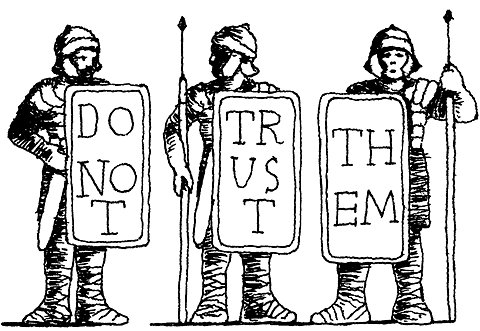
 According to Ben Sira, personified Wisdom is rooted in Jerusalem; at the command of the Creator, she has take up residence in Zion among the Chosen People. These days I have a hard time seeing anything which can be counted as “wisdom” coming out of the modern government of that land, and I could write hundreds, even thousands, of words about what I believe to be the foolishness of the criminal injustice being perpetrated on the Palestinian people by that government. But I won’t. Not today. Today, my thoughts run to the question of rootedness, to the metaphor of sustenance drawn from a particular place, to the spatial and cultural peculiarity of wisdom, and to what happens when one leaves a particular place and takes up residence in another.
According to Ben Sira, personified Wisdom is rooted in Jerusalem; at the command of the Creator, she has take up residence in Zion among the Chosen People. These days I have a hard time seeing anything which can be counted as “wisdom” coming out of the modern government of that land, and I could write hundreds, even thousands, of words about what I believe to be the foolishness of the criminal injustice being perpetrated on the Palestinian people by that government. But I won’t. Not today. Today, my thoughts run to the question of rootedness, to the metaphor of sustenance drawn from a particular place, to the spatial and cultural peculiarity of wisdom, and to what happens when one leaves a particular place and takes up residence in another.



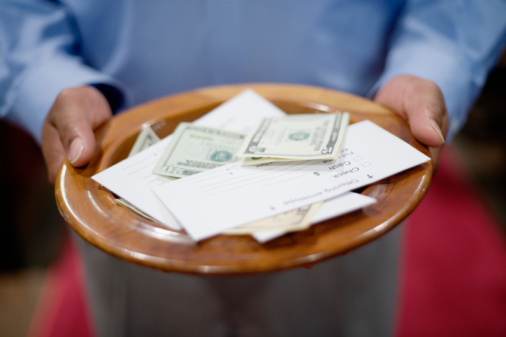
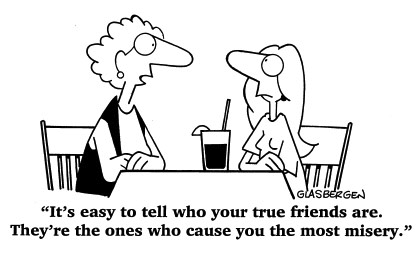
 We are straying from our usual lectionary path today because it is one of our Children’s Sundays and we have some younger kids reading the lessons at the 10 a.m. service. So, instead of a long reading from the prophet Joel (RCL Year C, Track 1), we have a brief lesson from the Book of Ben Sira, which is sometimes called Ecclesiasticus. (RCL Year C, Track 2) We thought it would be easier for a child to read.
We are straying from our usual lectionary path today because it is one of our Children’s Sundays and we have some younger kids reading the lessons at the 10 a.m. service. So, instead of a long reading from the prophet Joel (RCL Year C, Track 1), we have a brief lesson from the Book of Ben Sira, which is sometimes called Ecclesiasticus. (RCL Year C, Track 2) We thought it would be easier for a child to read. 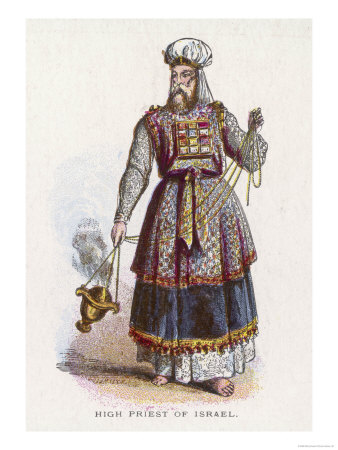 Wow!
Wow!

